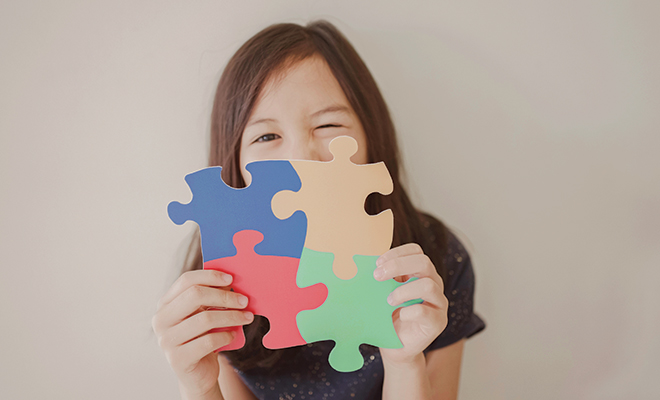
Supporting Neurodiversity: Advice from Experts
The experts state in the introduction to Navigating Autism, “When you accept, embrace and foster the uniqueness of each child you encounter, you shift that child’s sense of themselves. When you stay focused on strengths, passions and possibilities, then they, and everyone around them, can, too.” In this guide for parents, professionals, family members and anyone who has contact with a person with autism, nine mindsets are introduced.
Every child is more than autism.
We live in a world of labels. “The problem with the label of autism is you’ve got a spectrum that ranges from Einstein to someone with no language and with intellectual disability,” Dr. Grandin says. The wise parent, clinician or educator must appreciate all aspects of the child to help them develop a full identity. “An accurate view of any child’s personality includes their talents and strengths. Their personality is not defined by autism.”
Whole child evaluations are vital.
Testing and evaluation may be routine for the evaluator, but they are new, stressful and anxiety-provoking for families and children. “The best professionals are the ones who get all the details about a child and then put those details into context. The earlier a child is assessed, the better,” Dr. Grandin notes. “Every professional working with a child should make sure others are putting eyes on the kid as well. They might catch something the first professional doesn’t see, because there are so many functions impacted by autism.” She advises parents to maintain organized records of evaluations and assessments so that complete information is available to professionals working with the child.
Parents are equal team members.
“It felt like you’re being taken to the edge of a cliff. You’ve been given a diagnosis, you got shoved off the end, and then it was, ‘Oh, by the way, we haven’t got the parachute. You’ll need to get that for yourself,” said a parent who participated in interviews with researchers interested in the partnership between parents and providers. Professionals are advised to acknowledge the emotions parents may experience after a diagnosis; some feel relief, some grieve, many feel helpless and afraid. “Of all the basic information a parent needs, most sorely need to hear this: your child is capable of loving you.”
Medical conditions may be untreated.
Language, sensory and perceptual differences can interfere with a child’s getting appropriate help for medical or psychiatric problems. If the child does not know how to ask for help, she’s unlikely to reach out to a caregiver or provider for assistance with a physical ailment. The most common medical issues are pain, gastrointestinal disorders, seizures and sleep disorders, which can cause changes in mood, social behavior and activity level.
A secondary psychiatric diagnosis may be present.
Rates of co-occurring autism and attention deficit disorder are striking. Some reviews note that the co-occurrence of attention deficit hyperactivity disorder is as high as 65 percent. These co-occurrences can greatly impact the daily quality of a child’s life if they go unrecognized and untreated. Depression, anxiety, trauma and other emotional disturbances make social and academic success more difficult for children with autism. Children with autism are also more prone to adverse experiences from neighborhood violence, parental divorce, mental illness and substance abuse, according to Drs. Grandin and Moore. “Autistic kids are bullied all the time. Teachers can help by talking to kids in the classroom and explaining how Johnny is different in some ways but mainly just a regular kid,” Dr. Grandin notes.
Prepare kids for the real world.
As with typical children, parents and professionals must think ahead with atypical children about the life stage of adulthood. Basic competencies such as communication, particularly for nonverbal children, personal hygiene and self-presentation can be incorporated into routines and skill development. Skills such as safety, home living, transportation, even driving, recreation, leisure and hobby development can build an individual’s independence and confidence. It’s important to recognize a child’s innate skills and keep her vocational future in mind with all interventions.
Envision a successful adulthood.
Jeremy loved taking things apart and putting them back together, and he loved trains. His father, a self-taught handyman, began having his son help him on small projects as a pre-teen, teaching the use of tools, how to measure, how to understand instruments such as pressure gauges. He also found a local railroad club, and the older, retired men welcomed Jeremy. Through a volunteer job with Habitat for Humanity, Jeremy observed electricians at work, was able to tag along and be a helper. Jeremy merged both interests, put together a portfolio of his work and successfully competed for and secured a good job!







